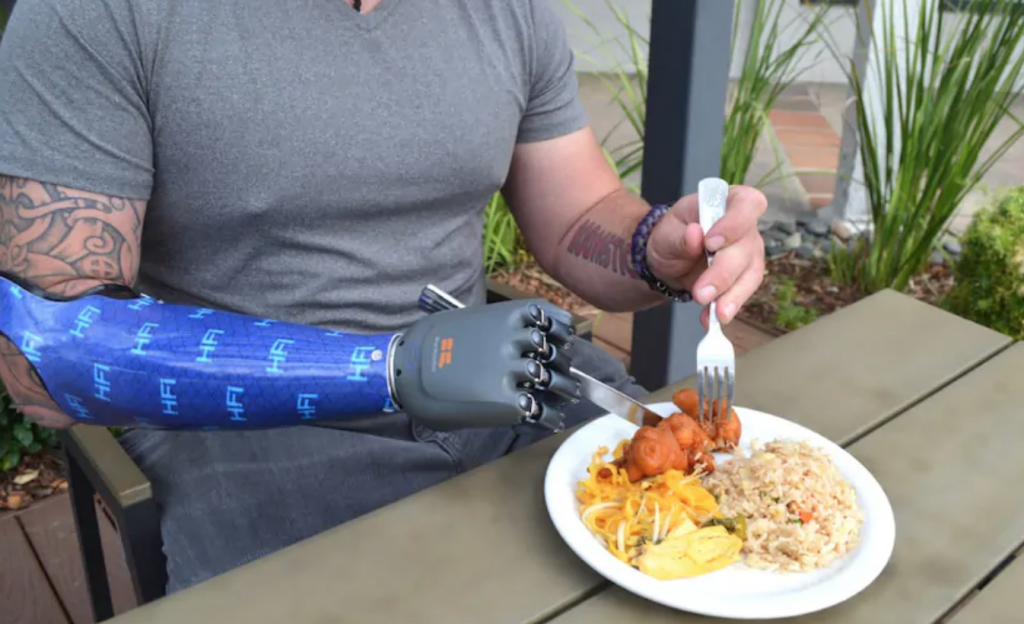
Army captain Carey Duval practices with new prosthetic hand by eating a meal. (Source: BrainRobotics)
AI Trained on Muscle Signals Improves Prosthetic Hand Dexterity for ‘Bionic’ Effect
A story by Dalvin Brown in washingtonpost.com describes the introduction of a lower-priced AI-driven prosthetic hand that gives users up to 24 movements.
Engineers at BrainRobotics have created a next-generation prosthetic out of aviation-grade aluminum and plastic that’s more mobile and affordable than other robotic limbs used today.
“It’s a hand-powered by artificial intelligence that gives amputees precise control over each finger, enabling them to perform numerous gestures and grips.”
This month the company is demonstrating the technology as it undergoes FDA testing.
“In today’s world of brain-powered bionic limbs, highly functioning prosthetics are too expensive to reach many people who could benefit from them, researchers in the field say. The BrainRobotics device seeks to be the answer to that, with prices expected to start 30 percent lower than what’s on the market right now.”
And when these bionic limbs go for anywhere from $30,000 to $100,000, saving 30% would be tremendous.
“The innovation is in the algorithm. It’s in the software,” said Max Newlon, president of BrainCo. “The innovation that gives our users this really precise, lifelike control is what sets us apart.”
The company was born out of Harvard’s Innovation Lab. Initially, it sought to control artificial limbs via brain signals but later found that measuring muscle signals was far more reliable, Newlon said.
Researchers developed the device for people like Carey Duval, an Army captain who lost his right hand in Afghanistan. He began testing the prosthetic in early December, spending a few weeks training to use the device proficiently. The robotic hand enabled him to complete activities such as playing Jenga and open a water bottle. He said he is excited about the potential to play video games again.
The BrainRobotics hand prosthesis connects to a smartphone app via Bluetooth, maintains a charge throughout the day and can be programmed within a few minutes, the company says.
To set it up, amputees are instructed to “think” about moving individual fingers and making hand gestures while the prosthetic is attached. Meanwhile, the device measures and remembers what each signal looks like. It’s ready to operate within 15 minutes, the company says.
read more at washingtonpost.com







Leave A Comment